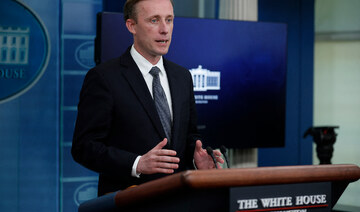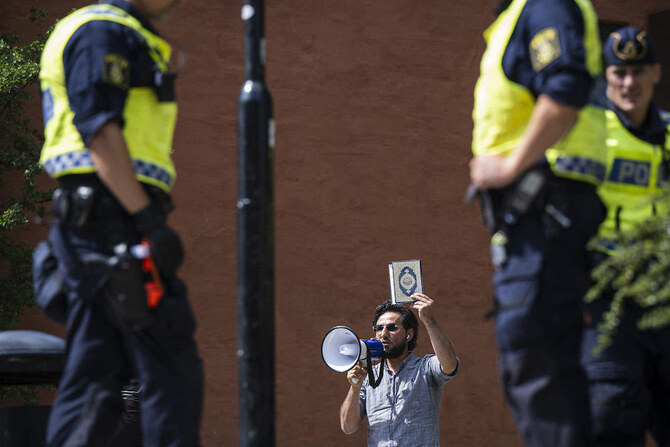MANILA: Time magazine has featured Philippine President Ferdinand “Bongbong” Marcos Jr. in its list of the 100 most influential people of 2024, which includes other heads of state, celebrities, scientists and tycoons.
First published in 1999, the annual list recognizes people from various fields for making an impact, breaking records or rules. Entrants are featured for making change — regardless of the consequences of their actions.
Marcos, 66, the son and namesake of the late Philippine dictator, won a landslide victory in the 2022 elections. He campaigned on the issue of national unity and portrayed himself as the candidate for change, promising happiness to 110 million Filipinos, weary of pandemic hardships and years of political polarization under his immediate predecessor Rodrigo Duterte.
The magazine recognized his efforts to rehabilitate and “whitewash” the name of his father and also highlighted his other achievements in office.
“He brought technocrats back into government, steadied the post-pandemic economy, and elevated the Philippines on the world stage,” Time’s news correspondent Charlie Campbell wrote.
“Many problems persist, including extrajudicial killings and journalists routinely attacked. But by trying to repair his family name, Bongbong may reshape his country too.”
The article also recognized Marcos for standing against Beijing’s claims in the disputed South China Sea, where Chinese ships have been regularly entering the Philippines’ exclusive economic zone.
Standing steadfast against Chinese aggression has also gained him praise at home.
“His policy on the West Philippine Sea of standing up against China is good,” said Raymond Zabala, a lawyer, who was “optimistic and skeptical at the same time” about Marcos’ inclusion in Time’s list, owing to unanswered issues about his family’s ill-gotten wealth and abuses during his father’s rule.
“Given his family’s background and some of the issues during the election campaign, I can’t help but feel critical.”
While appearing on Time’s list is often seen as an honor, Filipinos said they did not see how their country was improving its reputation, although they were observing fewer human rights violations compared with the previous Duterte administration and its “war on drugs,” which according to rights groups has led to the deaths of over 12,000 people.
“The Philippines will be reverting back to its usual image of a corrupt nation, probably minus the extrajudicial killings,” said Crystal Arcega, a law student.
Writer Pam Musni told Arab News she felt the perception of Marcos’ administration was the same as that of his predecessor’s, although “probably less bloodthirsty” and “more emboldened” against China.
“I understand why he was included in the list, with ‘influential’ not necessarily being a good or bad thing,” she said.
“It is especially frustrating that he does not make any significant strides towards the threat of climate change, and that he has expressed support for Israel, a country that has been killing many innocent lives in Palestine.”
A recent Pulse Asia survey showed Marcos’ performance ratings fell from 68 percent in December 2023 to 55 percent in March.
“I’m still waiting to hear how he plans to assert our sovereignty, since that is always a balancing act with the US,” said sustainable development practitioner J.K. Asturias.
Initially enthusiastic about Marcos’ $160 billion infrastructure plans under his Build Better More program, he has been increasingly critical over lack of support for alternative modes of transportation.
“In recent times I’ve been especially disappointed with how they are banning light electric vehicles even though there is a law that says the government should be incentivizing their adoption. I also feel he does a lot of greenwashing, pretending he’s pro-environment even though he pushes for mining,” Asturias said.
For him, the impression that Time’s list would create was one of the Filipinos’ tendency to forget.
“Many people will most likely see the Philippines as a nation that forgets too soon and forgives too much,” he said. “If they don’t think that already.”
Other Filipinos featured by Time have included Duterte and his vocal critic and former senator Leila de Lima in 2017.
Journalist Maria Ressa was recognized by Time in 2019 — two years before becoming a Nobel Peace Prize laureate.
The late former President Corazon Aquino, a central figure in the ousting of Marcos’ father in the bloodless 1986 People Power Revolution, was Time’s Woman of the Year in 1987.






























